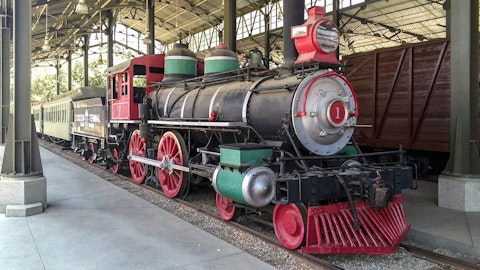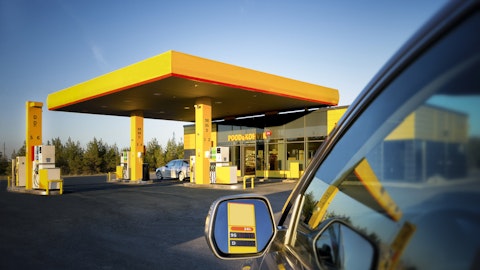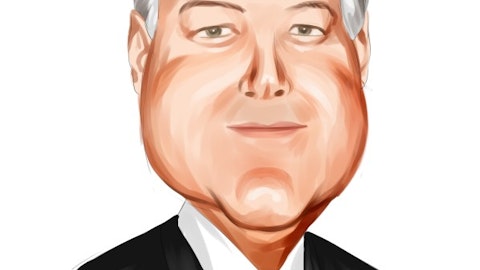1. Berkshire Hathaway Inc. (NYSE:BRK-B)
Number of Hedge Fund Holders: 104
Berkshire Hathaway Inc. (NYSE:BRK-B) was among Wells Fargo’s top financials stock picks for a recession. At the close of Q1 2022, 104 hedge funds disclosed ownership of stakes in Berkshire Hathaway Inc. (NYSE:BRK-B). These funds held collective stakes worth $19.06 billion in the company. The conglomerate has a diverse portfolio of investments spanning technology, services, consumer staples, healthcare, and energy among others. A diverse portfolio allows Berkshire Hathaway Inc. (NYSE:BRK-B) to manage risk and makes it a relatively less volatile stock to invest in.
This April, Berkshire Hathaway Inc. (NYSE:BRK-B) announced another strong quarter when it released its earnings for the first quarter of fiscal year 2022. The company’s revenue for the quarter amounted to $70.81 billion, up 9.61% year over year, and was ahead of expectations by $1.66 billion. Berkshire Hathaway Inc. (NYSE:BRK-B) registered an EPS of $3.18 and outperformed Wall Street consensus by $0.31.
As of March 31, Bill & Melinda Gates Foundation Trust owns more than 28 million shares of Berkshire Hathaway Inc. (NYSE:BRK-B) which amounts to a stake of $10.12 billion. Bill & Melinda Gates Foundation Trust is the leading stakeholder in the company.
Here is what Black Bear Value Partners had to say about Berkshire Hathaway Inc. (NYSE:BRK-B) in its first-quarter 2022 investor letter:
“Below is the rough Berkshire on-a-napkin valuation I like to do periodically. Recently BRK acquired Alleghany for $11.6BB. I assume a reduction in cash for this amount and an increase of $550MM in operating income. I do not give benefit to the increased float nor any synergies. Again, this is a rough exercise to sanity check our assumptions.
Cash of ~$103,000 per class A Share (vs. $104k 1 year ago)
-Down/Base/Up marks cash at book value to an 8% premium (vs. to 10% a year ago)
-Investments based on December prices ~$248,000 per class A share (vs. $194k a year ago)
Presume a range of stock prices that result in:
-Down = $149,000 per class A share (-40%- assumes portfolio is overpriced)
-Base = $211,000 per class A share (-15% – assumes portfolio is overpriced)
-Up = $285,000 per class A share (+15%)
Operating businesses that should generate ~$17,000 of pre-tax income per Class A share (vs. $15k)
-Down = 9x = $153,000 per share – equates to ~8% FCF yield
-Base = 12x = $204,000 – equates to ~6% FCF yield
-Up = 12x = $204,000 – equates to ~6% FCF yield
Overall (vs. $529,000 at quarter end)
-Down = $413,000 (-28%)
-Base = $526,000 (fairly priced)
-Up = $600,000 (13% underpriced)
Going forward I expect Berkshire to compound at good, not great returns. The likely question is why own it at all if we expect modest returns…
BRK is a collection of high-quality businesses, excellent management, and a good amount of optionality in their cash position. If the cash were to be deployed accretively the true value would be greater than an 8% premium (as mentioned above). The combination of a pie that is growing, an increasing share of said pie due to stock buybacks, upside optionality from cash and a tight range of likely business outcomes that span a variety of economic futures gives me comfort in continuing to own Berkshire.”
You can also take a look at 10 Stocks to Buy Before the Next Recession and 10 Best Recession Stocks To Buy.





